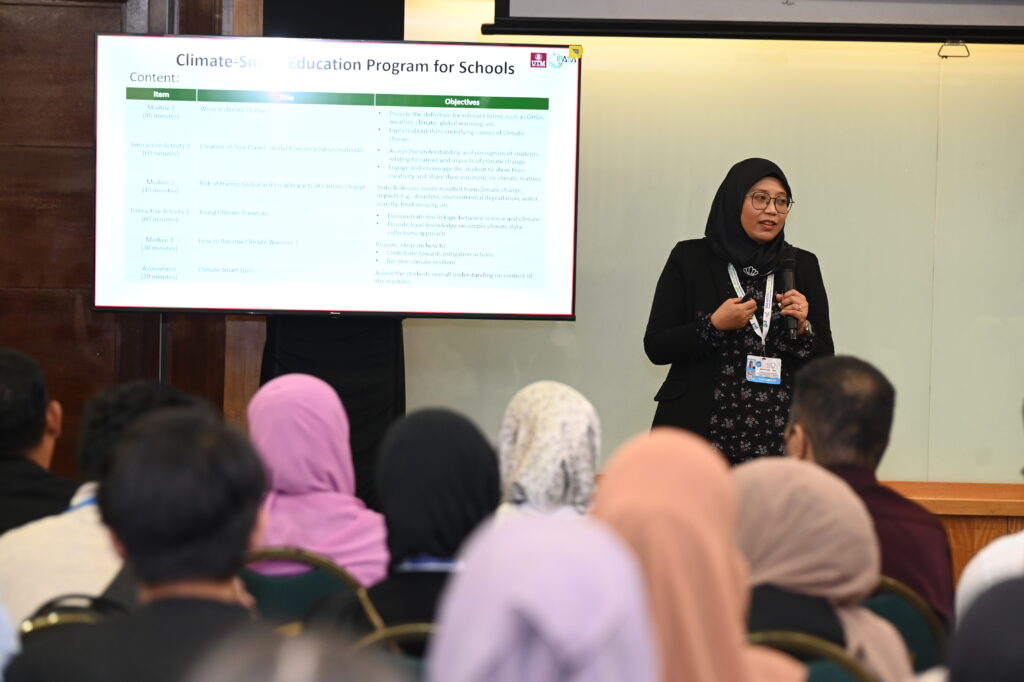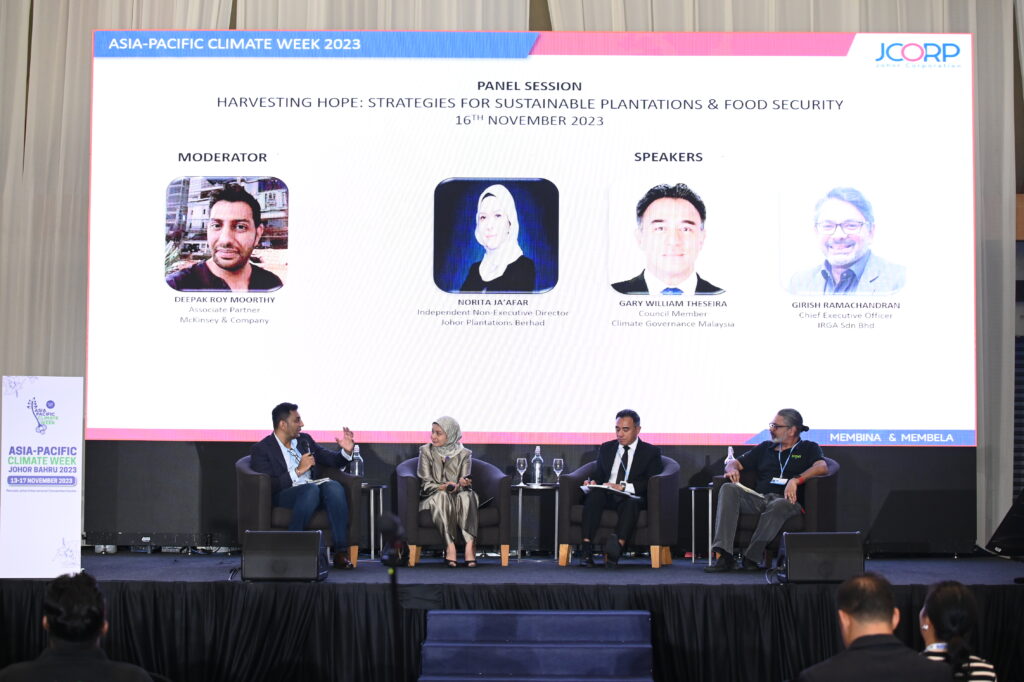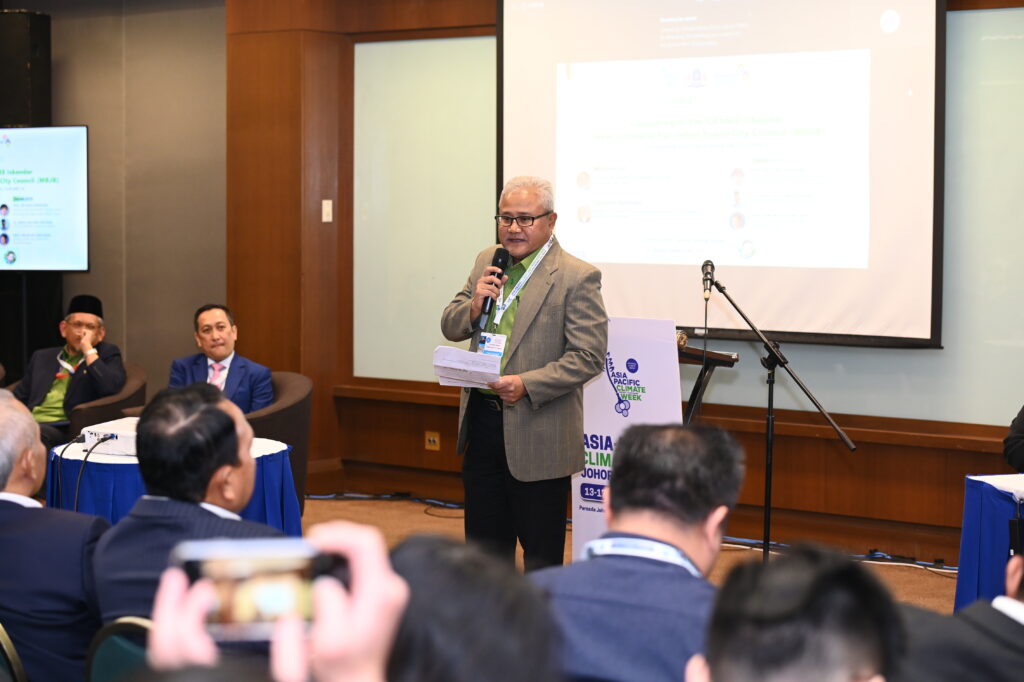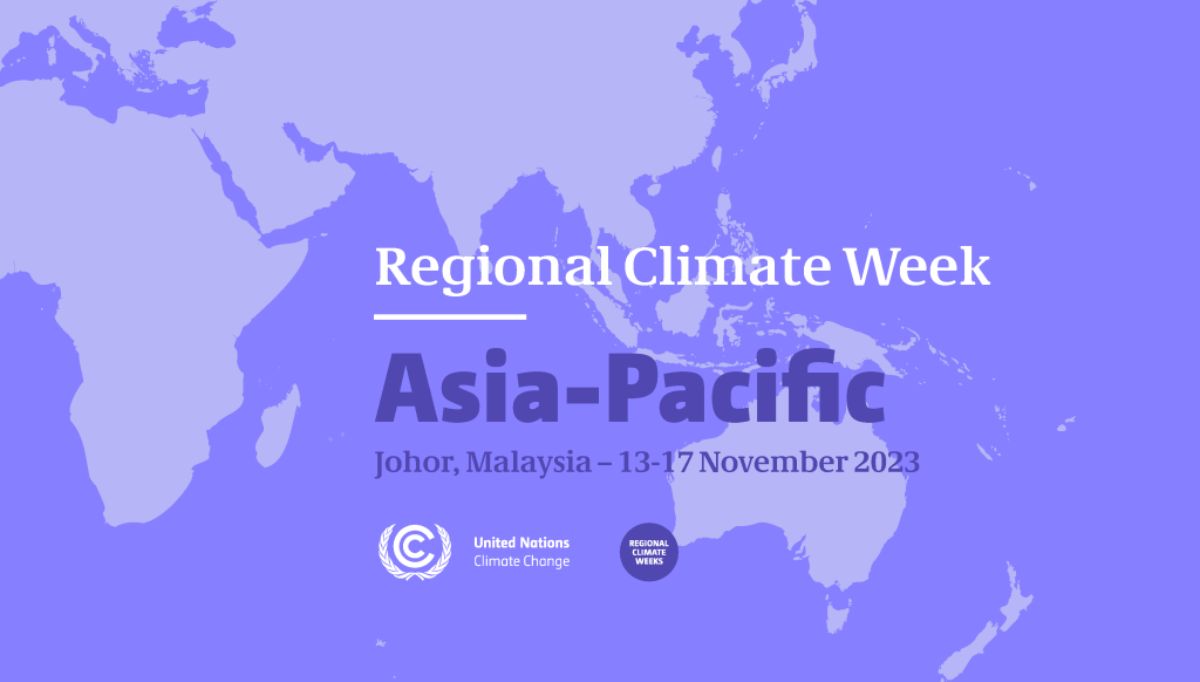16th November 2023: Day 4 of the APAC Climate Week instills environmental consciousness from a young age. The Iskandar Malaysia Ecolife Challenge (IMELC) has successfully penetrated 907 primary schools in Johor. With an extensive reach of 500,000 participants, the program actively involves students, parents, and the local community in exploring low-carbon topics. Addressing an audience at the APCW 2023, Mohd Hanafi Samad, the Deputy Director (Learning Sector) of the Johor Education Department, underscored the pivotal role played by parents and the community over the 11-year evolution of the IMELC program under Pendidikan Holistik 2.0 Kelestarian Jabatan Pendidikan Negeri Johor. Quoting the essence of their approach, he stated, “Why do we start implementing it in schools? Because we want to create awareness of things related to environmental activities and sustainability.” Samad highlighted the growing enthusiasm, with students bringing recyclable materials from home for on-site recycling.
The APCW 2023 saw a dedicated session on “Shaping Up Future Climate Change Leaders Through Multi Stakeholders’ Collaboration,” featuring key figures such as Datuk Dr Badrul Hisham Kassim, Chief Executive of the Iskandar Development Regional Authority (IRDA); Prof. Dr Fatin Aliah Phang, Fellow of the Engineering Education Centre (CEE) at Universiti Teknologi Malaysia (UTM); and Mohd Norlizam Mohd Nordin, Corporate General Manager of SWM Environment.

At a parallel discussion session on “Getting the Young Generation to be Climate Ready – A Climate Change Education Module for Schools,” Professor Dr Zainura Zainon Noor, Director of UTM’s Centre for Environmental Sustainability and Water Safety, stressed the importance of early climate education for children. This session, organized by Permodalan Darul Ta’zim, underscored the necessity of fostering environmental awareness from a young age.
Dr. Zulfaqar Sa’adi’s Research Reveals Climate Change Impact on Water Resources
The Johor River Basin (JRB) faces an imminent threat due to climate change, jeopardizing its water resources. In his enlightening talk, “Climate Change Scenarios and Water Security in Johor River Basin,” Dr. Zulfaqar Sa’adi from UTM’s Centre for Environmental Sustainability and Water Security shed light on the challenges. Dr. Zulfaqar is actively collaborating with various partners to develop comprehensive plans for water resource conservation. His engagement extends to local communities, organizations, and educational institutions, aiming to educate and empower the next generation on the significance of water conservation.

Sustainable Plantations and Food Security: A 2030 Vision
The APCW 2023 hosted a panel discussion titled “Harvesting Hope: Strategies for Sustainable Plantations & Food Security,” advocating the exploration of local food sources like glutinous rice and black soldier flies. Dr. Gary Theseira, Director and Council Member of Climate Governance Malaysia, emphasized the potential to enhance local food security while reducing reliance on imports. Norita Jaafar, Independent Director of Johor Plantations Berhad, highlighted the company’s commitment to renewable energy, aiming for 85% energy from renewable sources by 2030.
Girish Ramachandran from IRGA Sdn Bhd underscored the need for advanced technologies in plantation practices. He emphasized innovations such as a specialized wheelbarrow to reduce strain on field workers transporting palm fruit.

CASBEE Iskandar: Paving the Way for Decarbonization and Smart Cities
Implementing the Comprehensive Assessment System for Built Environment Efficiency (CASBEE) Iskandar is set to accelerate decarbonization and smart city progress in Johor Bahru City Council (MBJB). Plans are underway for broader adoption across the entire state. Dato’ Haji Mohd. Noorazam Osman, Mayor of Johor Bahru, expressed commitment from all four mayors in Johor to incentivize developers to incorporate green building practices and sustainable elements into their projects.
Read more: APAC Climate Week Day 3: Action Hub Takes Center Stage
Implementation Pathways for Low-Carbon Transport
During the insightful session on “Implementation Pathways for Low Carbon Transport: Policy Framework and Financing Mechanisms,” global speakers highlighted the urgent need for enhanced support and resources for countries venturing into low-carbon initiatives. Beyond financial considerations, the challenges revealed the importance of addressing structural and behavioral aspects, emphasizing the role of heightened awareness and education in ensuring successful implementation.
The core challenge identified extends beyond the transition to low carbon, emphasizing the essential need for skills training in the global workforce. Acknowledging the perpetual evolution of technology and its disruptive influence on various facets of life and work, adapting to these changes, and cultivating the necessary skills emerged as crucial elements for seamless integration. The discussion emphasized the significance of implementing strategies that not only facilitate the transition but also prioritize building the capacity and skills necessary for resilience in nation-building efforts.
Resilience Against Odds: Sri Lanka’s Grassroots Journey Toward Renewable Energy Amid National Financial Challenges
In one of the sessions at the Action Hub, participants delved into the inspiring grassroots narrative of Sri Lanka’s resilience in tackling national financial challenges. The discussion not only highlighted the collective determination of the community, but also showcased live examples of innovative initiatives happening on the ground. From local solar projects illuminating remote villages to community-driven wind energy endeavors, the session provided a firsthand glimpse into the tenacity of individuals overcoming financial constraints to drive tangible progress in the realm of renewable energy. Despite the economic hurdles faced at a national level, these real-life examples underscored the unwavering commitment of Sri Lanka’s grassroots, proving that positive change is possible even in the face of adversity.
Legal Disclaimer: The Editor provides this news content "as is," without any warranty of any kind. We disclaim all responsibility and liability for the accuracy, content, images, videos, licenses, completeness, legality, or reliability of the information contained in this article. For any complaints or copyright concerns regarding this article, please contact the author mentioned above.

















